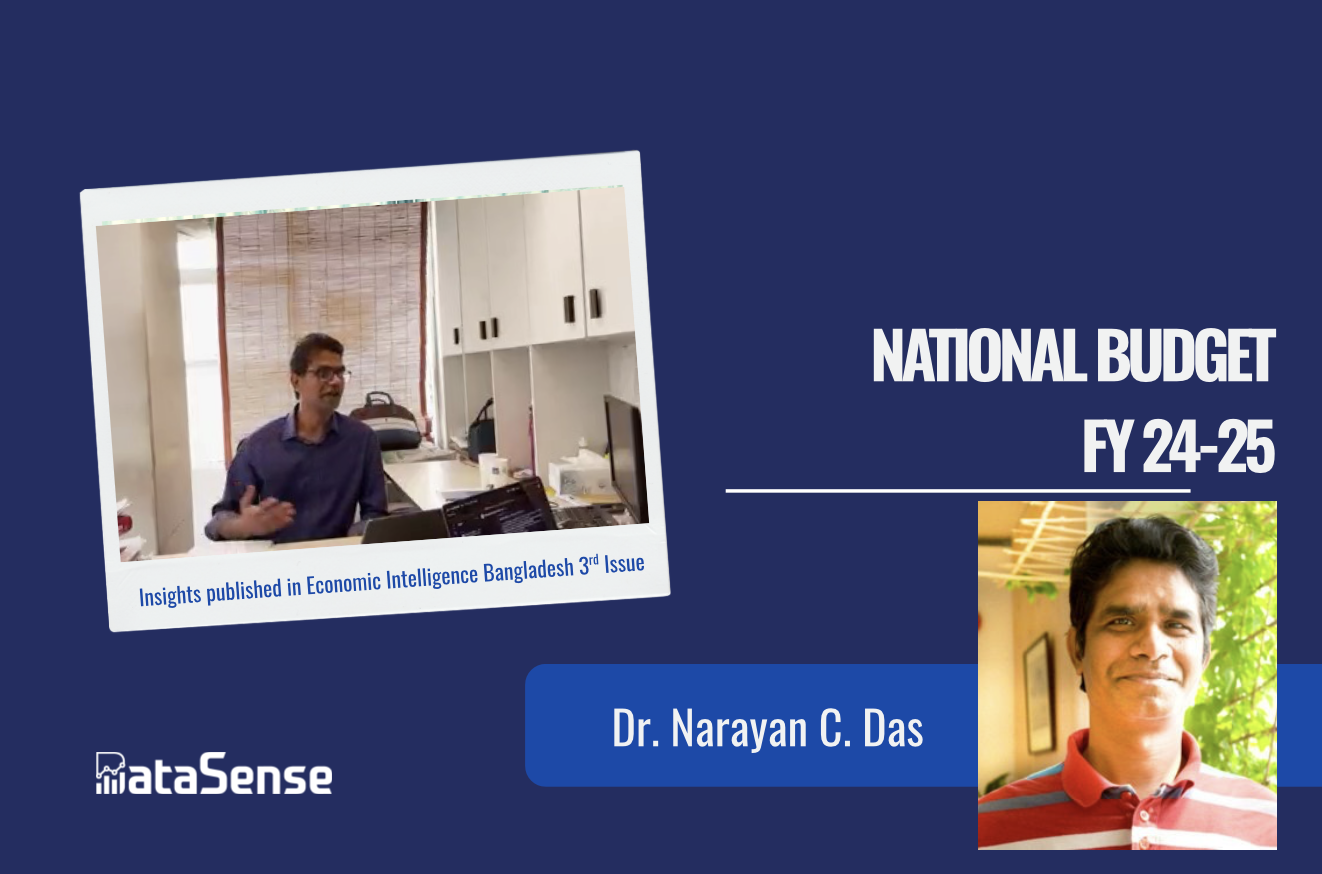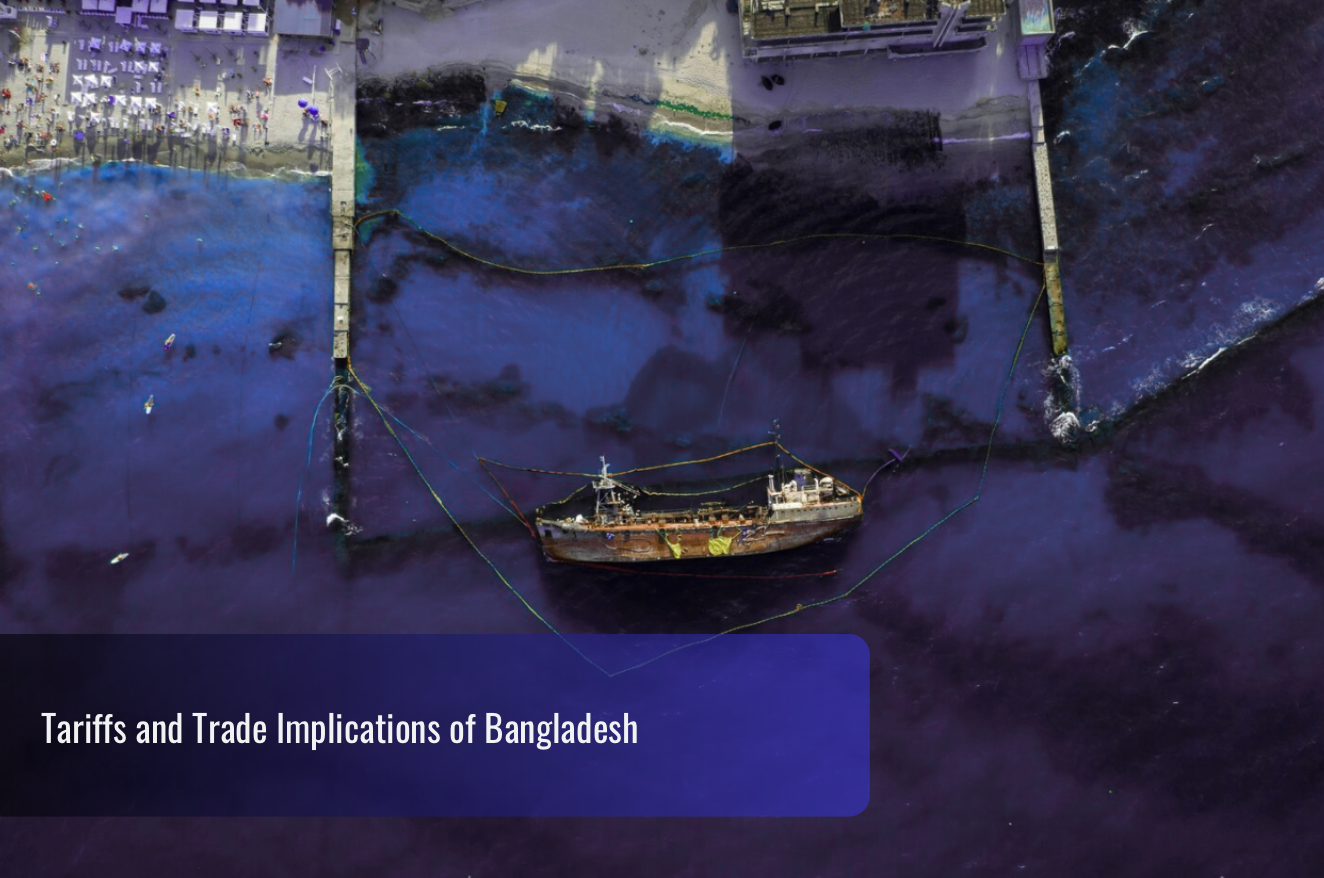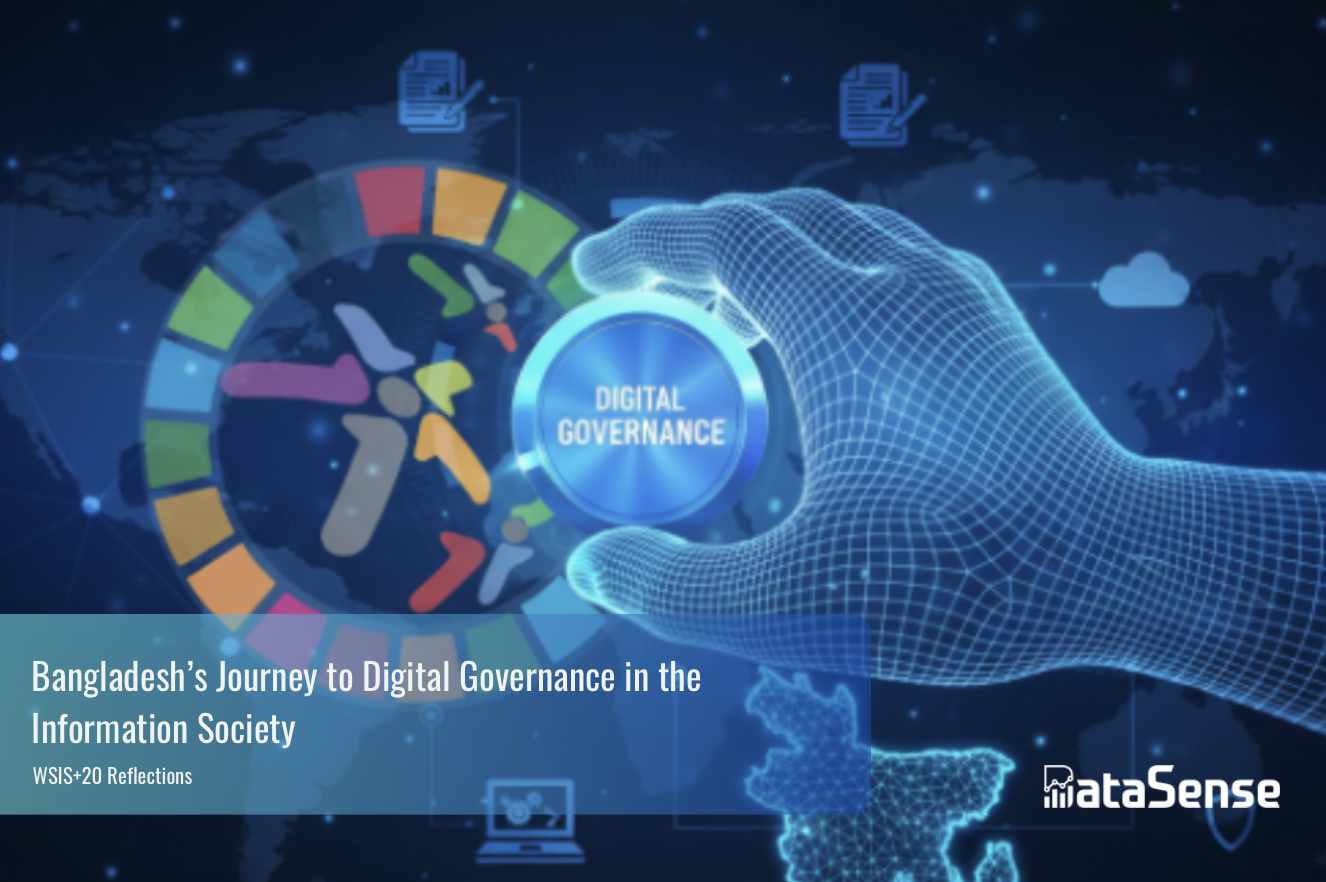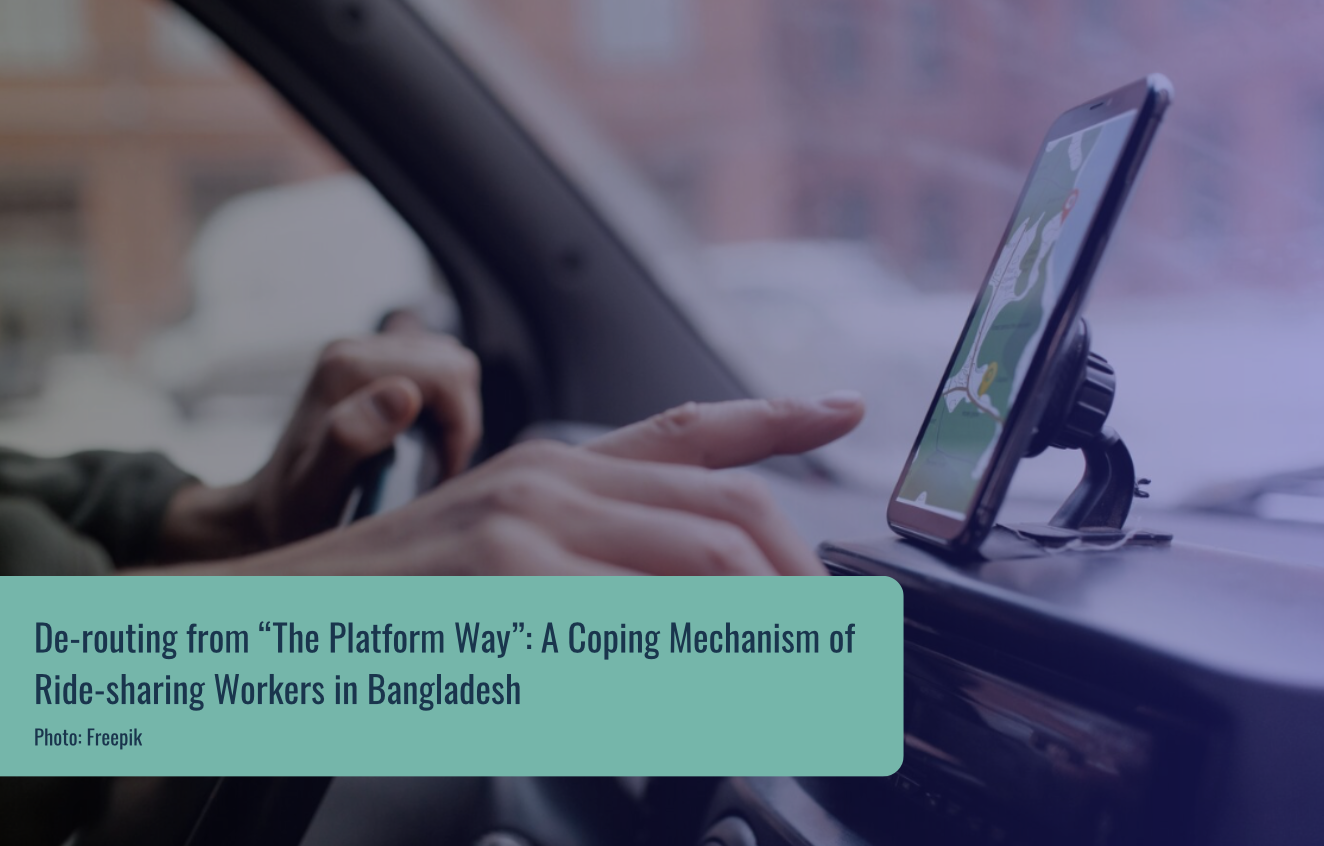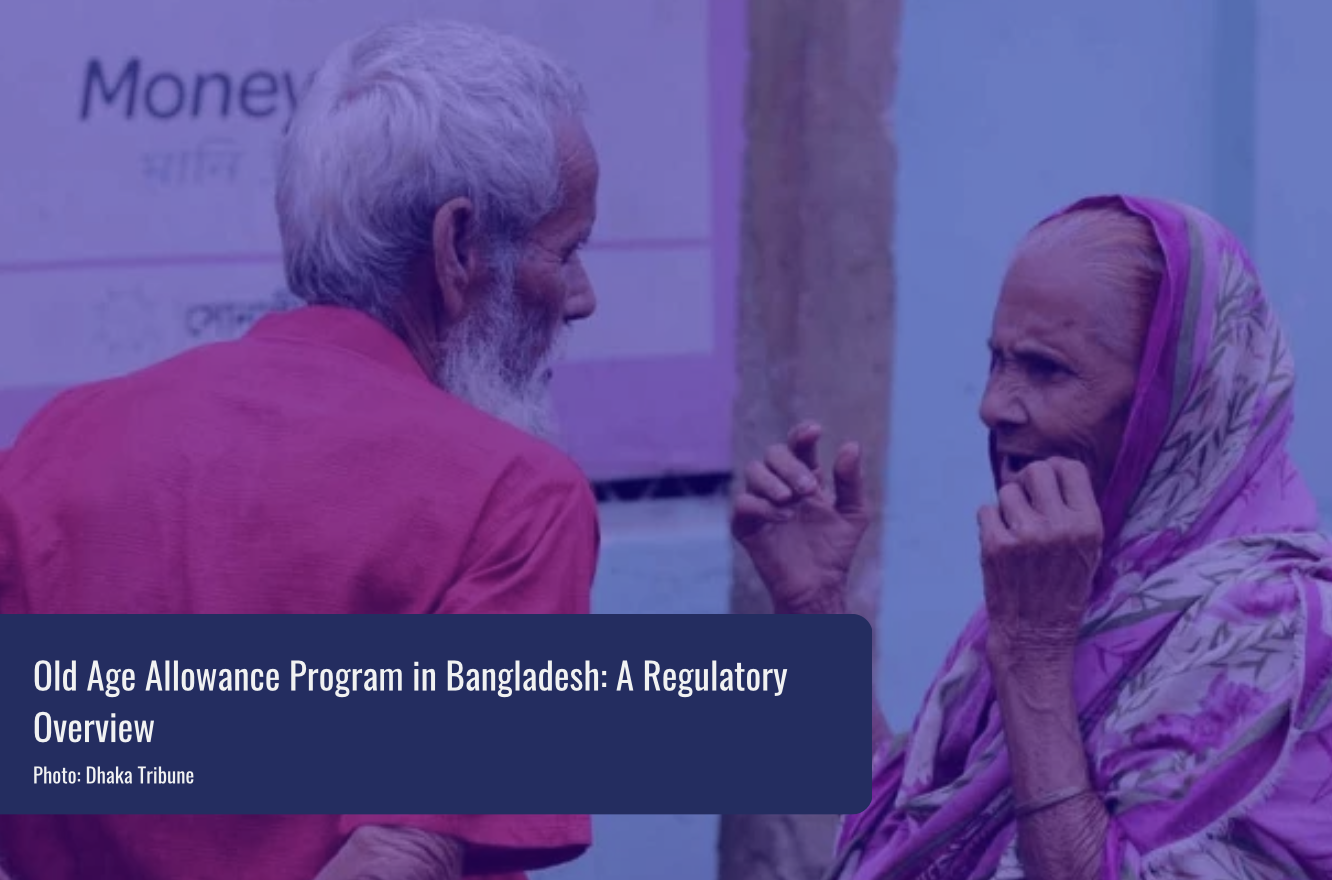DataSense spoke with Dr. Narayan C. Das, Development Economist and Senior Research Fellow at BIGD, BRAC University, to discuss the critical socio-economic challenges and the necessary policy interventions the National Budget for Fiscal Year (FY) 2024-25 must undertake.
His analysis stresses a shift toward sustainable financing, human capital development, and climate resilience to ensure long-term stability and tackle poverty effectively.
Top 3 Challenges and Remedies
Dr. Das identifies three interconnected challenges threatening Bangladesh’s long-term sustainability and immediate living standards.
1. Inflation Control and Cost of Living
While macroeconomic stability is key, ordinary people prioritize keeping the cost of living low, especially food prices. Inflation control requires both demand-side management and targeted supply support.
2. Quality of Education and Addressing High Youth Unemployment
Simple increases in funding for infrastructure (e.g., building new colleges) are insufficient. The budget must address the deep-seated quality issues in education that lead to high unemployment among young graduates and skills gaps across key sectors.
3. Rising Interest Payments and Financial Sustainability
A rise in interest payments on government debt is raising concerns about the long-term financial sustainability of the public sector. This is compounded by a structurally low Tax-to-GDP ratio and inefficient social safety nets.
Social Safety Nets and Climate Resilience
Dr. Das also emphasizes the need for crucial reforms in social protection and forward-looking climate policy.
Expanding Social Protection
The reach of Bangladesh’s Social Safety Net Programs (SSNP) is still low, reaching only in rural areas and in urban areas (HIES 2022 survey).
- Inclusion: More than half of people with disabilities are currently excluded from SSNP coverage. The budget must increase the coverage and value of social benefits, which is even more critical given rising commodity prices.
- Livelihood Improvement: Investing in livestock development (drawing inspiration from BRAC’s Ultra Poor Graduation Program) and expanding crop and livestock insurance can improve livelihoods and encourage investment in food production.
Addressing Climate Risk
Given the country’s high vulnerability, long-term climate action must be integrated into the budget.
- Collaboration: Collaboration between the government and NGOs is necessary to address future climate risks and ensure effective resource deployment, alongside greater international cooperation on climate change initiatives.
This content was originally published in Economic Intelligence Bangladesh’s 3rd Issue.

